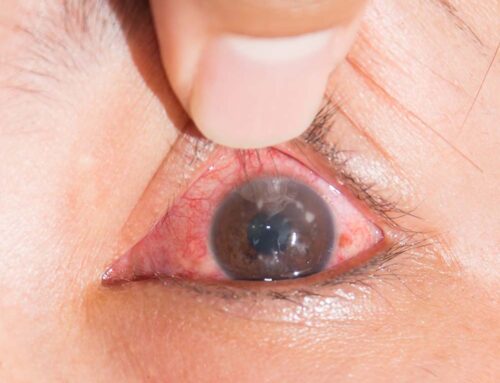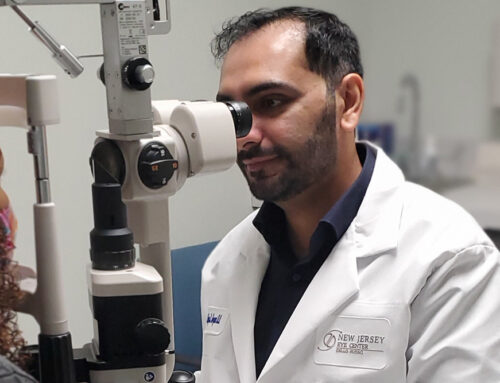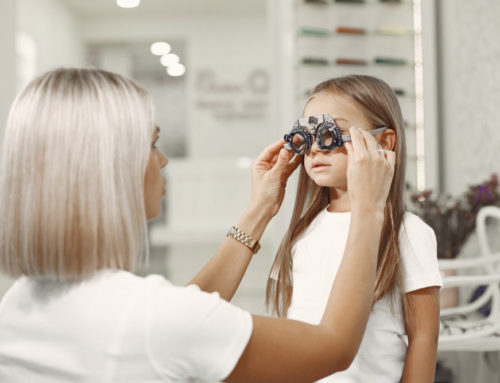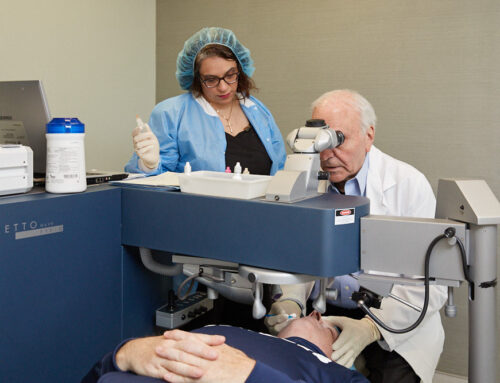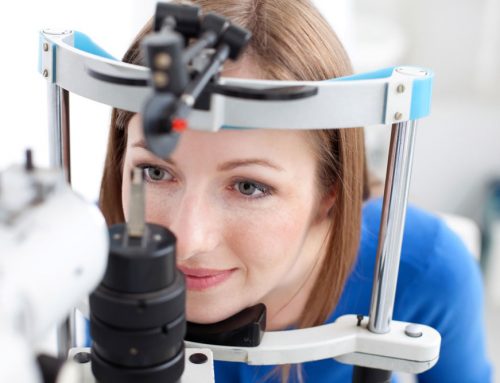
Tolerating the light is something that many of us take for granted. It’s not even a thought we would normally need to consider. However, those who suffer from light sensitivity, also known as photophobia, have to deal with it on a daily basis.
It can be any light source that stirs up sensitivity and discomfort. This includes fluorescent light, incandescent light, and even natural sunlight in extreme cases. Light sensitivity is not a condition on its own, but rather a sign of another problem. It is an inconvenient symptom to say the very least.
Anyone that has ever suffered from light sensitivity will know just how troublesome and irritating it can be. In particularly bad cases, it is even painful.
What conditions can cause light sensitivity?
Since there is less pigment to protect the eye, light-colored eyes are generally more prone to sensitivity than darker eyes. Dark eyes are better equipped to protect themselves against harsh, bright lights.
Sensitivity to light can also be brought on by a number of very common health issues. These include:
Allergies
Conjunctivitis can occur with allergies, not only bacterial or viral infections. Allergic conjunctivitis affects the conjunctiva membrane inside the eyelids. Inflammation of this area can cause burning, swelling, redness, excessive tears, and light sensitivity.
Dry eye
Dry eye occurs when the eye is unable to adequately lubricate itself. According to the National Eye Institute (NEI), dry eye can cause a number of symptoms such as burning, redness, and pain. Additionally, dry eye can also cause light sensitivity.
Concussion
A traumatic brain injury may cause sensitivity to light, but indirectly. There are many other symptoms that come along with a concussion, namely headaches. And with severe headaches, often comes sensitivity to light.
Corneal abrasion
A scratch or cut on the cornea will cause some light sensitivity. A corneal abrasion may also cause some pain, redness, blurred vision, and perhaps a headache.
Uveitis
Uveitis occurs when the uvea in the middle of the eye becomes inflamed, which could destroy some of the eye tissue. There is also the potential for a permanent loss of vision in extreme cases.
There is a wide range of other medical conditions which may result in sensitivity to light. These conditions include (but are not limited to):
- Ocular albinism
- Keratoconus
- Keratitis
- Cataracts
- Preeclampsia
- Macular degeneration
- Optic neuritis
- Dry eye
- Bacterial or viral conjunctivitis (pink eye)
All of these conditions can produce varying degrees of sensitivity to light.
Sudden light sensitivity
If you start to experience a sudden light sensitivity, get checked out as soon as possible. The best advice to heed in this situation is that of an optometrist. An evaluation of your symptoms and an eye exam will help determine what other underlying conditions may exist that are causing your discomfort.
Sudden sensitivity to light can also be an indication of more serious conditions such as meningitis.
Inflammation in the eye can cause a sudden onset of sensitivity as well. An eye can become easily inflamed should a foreign object get stuck inside. This may also come with quite a bit of pain.
Why are eyes sensitive to light?
In order to understand why eyes are so prone to becoming light-sensitive, we first need to understand how the eyes use light to see.
Light enters our eyes by reflecting off of surrounding objects. The front of the eye, the cornea, sends this message straight to the back of the eye, through the pupil.
It’s the pupil’s job to adjust in size depending on what kind of light is trying to enter. It does so by controlling the light passing through, while the lens focuses it. At the back of the eye, the retina sends the light received to the optic nerve in the brain.
All of the above happens in an impressively short amount of time, it’s virtually instantaneous. None of these functions are ever thought about by the average person. Now, if anything should go awry during one or several of these processes, this could cause some sensitivity to light.
In short, our vision depends on the light around us. This is because everything we see is a reflection of light from any given object or setting. Light enters directly into the eye, one of the most delicate organs on the body, which allows us to see the world around us.
Light sensitivity and headaches
Incapacitating headaches can easily leave someone in the dark. The pain of a migraine often keeps sufferers away from any light at all. People with migraines can become extremely sensitive to light during an episode.
It has been suggested that the trigeminal nerve (one of the nerves that cause facial sensations) becomes irritated by bright lights during a migraine. This creates temporary, but extreme, light sensitivity.
Not only can a headache or a migraine result in light sensitivity, but it can also be a trigger. In fact, 80 percent of people who complain of sensitivity report headaches as well.
Light sensitivity glasses
For those suffering from mild cases of light sensitivity, opt for sunglasses that offer UV protection. Pair these with a hat and it should help ease the discomfort experienced during daylight hours.
Polarized sunglasses also offer additional protection from glare and light reflecting off surfaces like water, snow, and sand.
For more extreme cases, there are light-filtering glasses available. These help to protect your eyes from harsh light—indoors and out. Unlike your standard sunglasses, which may be properly polarized, light-filtering glasses manage to soften the harshness of bright lights. Making your eyes feel more comfortable.
These photochromic lenses are able to block out the sun’s ultraviolet rays completely. They do so while simultaneously darkening all the other light around.
Light sensitivity can happen to anyone, at any time. There are many medical conditions and eye issues that can cause a sensitivity to light, as well as traumatic events like concussions and corneal abrasions.
Whether it’s sudden-onset or a progressively growing symptom, it’s best to not self-diagnose. Seek advice from a medical professional to determine the root of the issue.
Do not hesitate to walk in or make an appointment to see us at the New Jersey Eye Center in Bergenfield, NJ, if you suffer from light sensitivity and have further questions about this condition.


